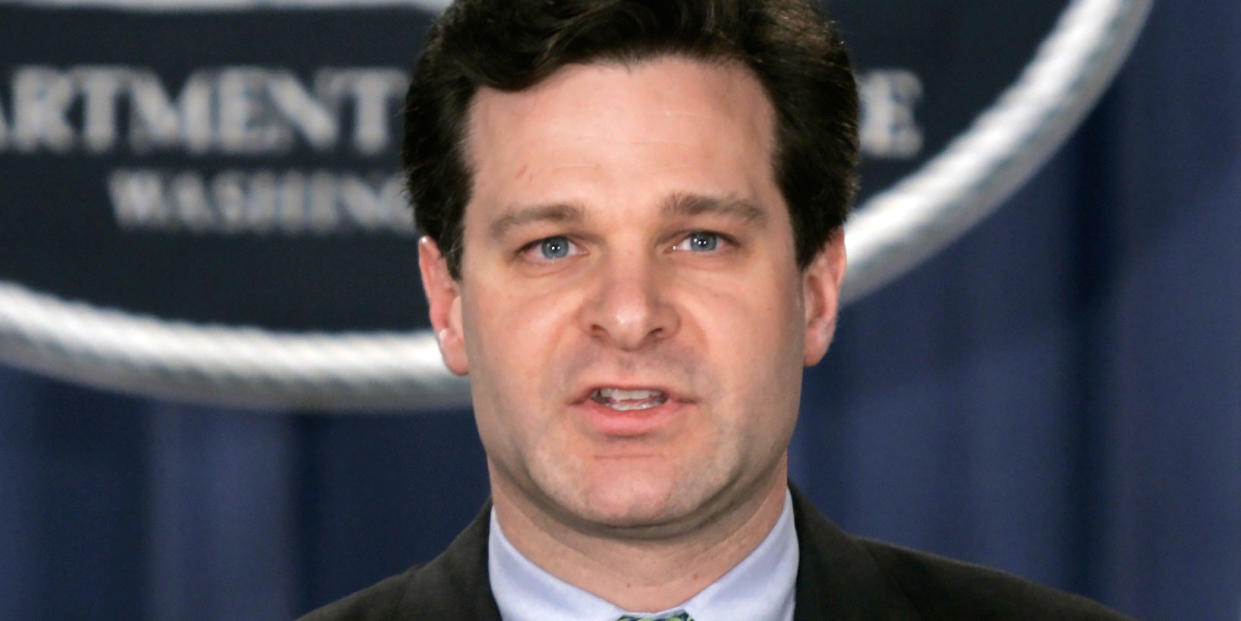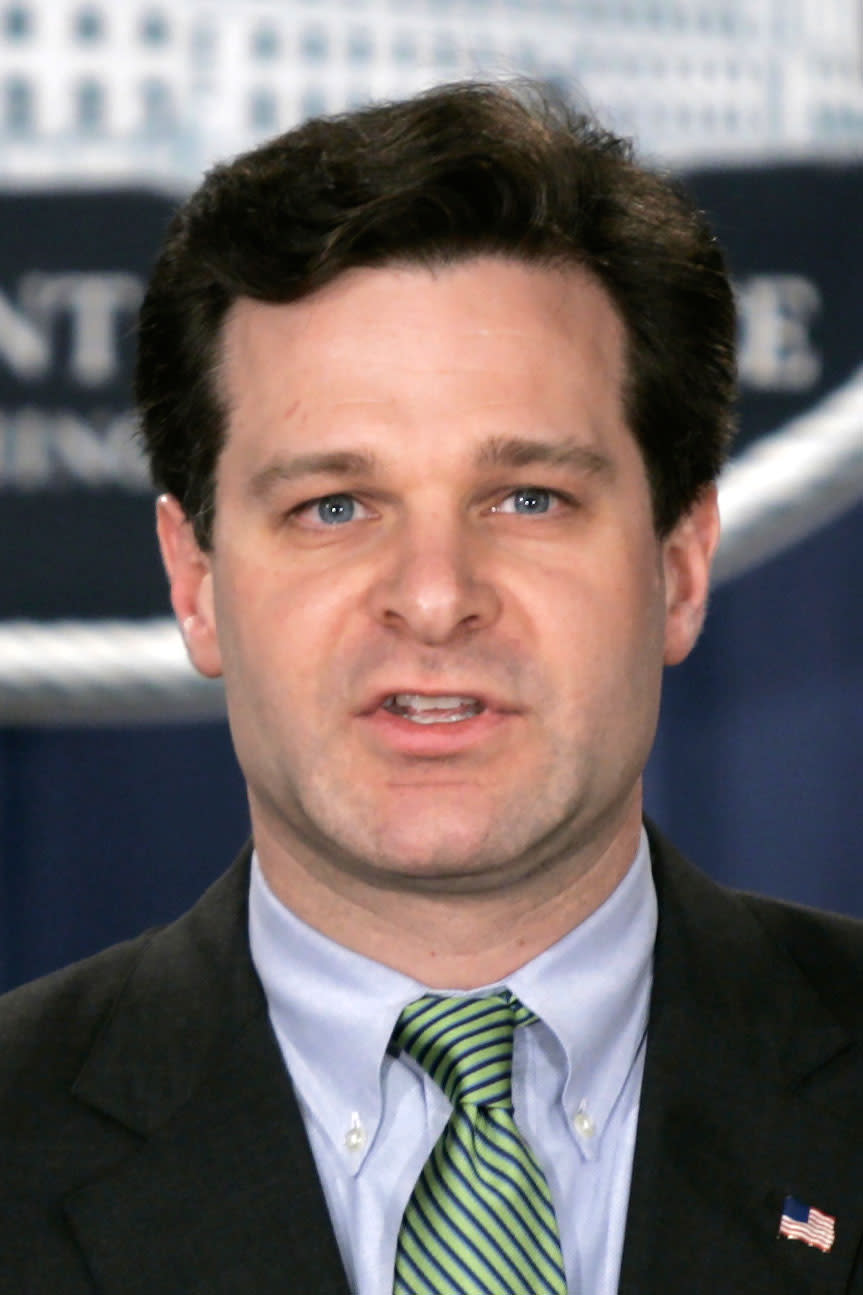9 Things You Need to Know About Christopher Wray


In June 2017, President Donald Trump announced that he would be nominating Christopher Wray to lead the FBI. Wray, a former federal prosecutor who now works as a criminal defense attorney, has "impeccable credentials," Trump tweeted.
I will be nominating Christopher A. Wray, a man of impeccable credentials, to be the new Director of the FBI. Details to follow.
- Donald J. Trump (@realDonaldTrump) June 7, 2017
The announcement came nearly a month after Trump unceremoniously fired James Comey, who had been leading the investigation into the Trump campaign's possible collusion with Russia to sway the 2016 election. On Tuesday, Aug. 1, Wray was overwhelmingly confirmed by the Senate to succeed Comey.
Here's what you need to know about Wray.
1. He is a traditional, safe choice for the job.
Amid rumors that Trump would tap a politician - former senators Kelly Ayotte or Joe Lieberman, for example - some worried that the president would buck the FBI's longstanding tradition of being led by nonpartisan law enforcement officials. Wray, however, fits the mold of a typical FBI director. He worked as an assistant attorney general overseeing the criminal division in the George W. Bush Department of Justice, and since 2005 has been a criminal defense attorney at the law firm King and Spalding. That has already allayed concerns that Trump would politicize the bureau: Even as Virginia Sen. Mark Warner, a Democrat, criticized the timing of Trump's announcement Wednesday, he conceded that he's heard Wray had "a good reputation."
2. He represented Chris Christie in the Bridgegate scandal.
As an attorney for King and Spalding, Wray served as the New Jersey governor's personal lawyer during the investigation into the lane closures on the George Washington Bridge in 2013. While Christie was not charged, two former aides were ultimately sentenced to prison for their roles in closing the lanes to punish a Democratic mayor who had declined to endorse the governor in his re-election bid. According to the New York Times, Wray's experience working in political scandal gave him an edge over his competitors in the nomination selection.
3. He's worked with Comey before.
Wray has previously worked with the man he'd be replacing. Comey served as the deputy attorney general in the George W. Bush administration; Wray worked below him in the Justice Department.
4. And along with Comey, he once threatened to resign from his Justice Department post.
In 2004, Comey and then-FBI director (and current special prosecutor for the Russia investigation) Robert Mueller staged a now-famous showdown with the White House.
When Bush's chief of staff and counsel attempted to have the attorney general, John Ashcroft, reauthorize an illegal domestic surveillance program from his hospital bed, Ashcroft, Comey, Mueller, and their aides planned a mass resignation. Wray reportedly told Comey at the time: "Look, I don’t know what’s going on, but before you guys all pull the rip cords, please give me a heads‑up so I can jump with you." (Bush ended up making changes to the wiretapping program and none of the officials resigned.)
5. He has donated to Republican candidates.
Though Wray isn't considered partisan, he has donated to Republican candidates in the past, according to Federal Election Commission records. He gave thousands to Arizona Sen. John McCain's 2008 presidential bid, as well as Mitt Romney's 2012 effort. He did not donate to a presidential candidate during the 2016 election.
6. He went to Yale for both undergrad and law school.
Wray graduated cum laude from Yale University in 1989, and from Yale Law School three years later. His wife, Helen, also graduated from Yale in 1989.
"We will excuse him for attending Yale University for both his undergraduate studies and his legal education, but he saw the light and came back to Georgia," joked former Georgia Sen. Saxby Chambliss at Wray's 2003 confirmation hearing.
7. He is considered "one of the best in the business."
According to Wray's King and Spalding bio, multiple legal publications consider him one of the top attorneys in criminal defense. One said Wray "brings instant credibility and will give you straight answers without blowing smoke," and is a “renowned heavy hitter."
8. If confirmed, he'll join an agency that may not have the president's full confidence.
The Department of Justice, which oversees the FBI, is facing a crisis of confidence: Attorney General Jeff Sessions reportedly offered to resign amid tensions with the president over the Russia investigation and White House press secretary Sean Spicer on June 7 wouldn't say whether Trump still believed in Sessions.
Trump also criticized the department - which, as president, is under his purview - over his travel ban, tweeting last month that "the Justice Dept. should have stayed with the original Travel Ban, not the watered down, politically correct version they submitted" to the Supreme Court.
The Justice Dept. should have stayed with the original Travel Ban, not the watered down, politically correct version they submitted to S.C.
- Donald J. Trump (@realDonaldTrump) June 5, 2017
As other officials have seen over the few months Trump has been in office, it can be difficult to work in the administration.
9. He promised to maintain the FBI's independence.
In his opening statement at his confirmation hearing, Wray said, "If I am given the honor of leading this agency, I will never allow the FBI’s work to be driven by anything other than the facts, the law, and the impartial pursuit of justice. Period. My loyalty is to the Constitution and the rule of law." He said no one from the White House had asked for his loyalty and if the president asked him to do anything he thought to be illegal, he would try to talk him out of him, and if that didn't work, he would resign.
Follow Rebecca on Twitter.
You Might Also Like

